QuestionHey Chrys, I was just wondering could you help me decide with your experience with
parrots a suitable one for my lifestyle. Ive researched extensively, however
each book and website tells the same monotonous story. ive read many reports
from owners which contradict the "expert" books and sites who have non agressive
mature amazons or cockatoos who are a little independant. however i realise each
bird is a complete and complex individual and these people have only had the
experience of owning one bird. i myself have had an orange winged amazon which
was amazing although it was only for a short period-6mths,unfortunately my then
girlfriend brought him outside to interact with other birds not realising his
wings were in need of clipping again and he flew away. he was young so i didnt
experience any of this anger or aggression amazons supposedly portray as they
reach sexual maturity. other than that he was perfect. his screeching was not
even an issue despite most books stating its an extremely noisey bird-twice a
day for a few mins, morning and evening.the rest of the day he was relaxed every
so often giving a few squawks of content or happiness. my circumstances are i
work 8-9 hours a day,live with my girlfriend who also loves birds. she works the
same amount of hours but we're on different shifts alot so the bird would be
alone max 5-6 hrs a day if at all. it will live in a large cage in the house but
will have full freedom when were there. i plan on buying a hand reared parrot
from a reputable breeder. parrotwise-i love all types and there different
traits. cockatoos are beautiful and love contact, greys are great companions and
incredibly intelligent and amazons are gorgeous and outgoing. however its their
documented flaws that are making it tough to choose. although, i dont believe
the books in sterotyping each type of bird. i believe its the same as dogs, the
pitbull is not an angry fierce dog its the owners who have made him that way, he
just has more power/size and inflicts more damage than say those angr!
y fierce
jack russels that you just kick off the bottom of your shoe. they're actually
great with kids and very loving. i love cockatoos but have ruled them out due to
their well documented clinginess, their shrieking, needing constant attention
24/7 and lack of independance(if you have had one type or know of breeds that
are not the stereotype, such as the smaller breeds which i prefer eg.lesser
sulphur crested, please inform me). im looking for a bird not too big as it will
be my girlfriends first interaction with a large intelligent bird, ideally 10"
to 13" at maturity. my amazon was a nice size approx 11"-12". which brings me to
the african greys....after researching the congo i feel they might be a little
too large(14" fully grown is this true?) for my girlfriend. the smaller timneh
is nice and what ive read about these guys from their owners they dont get the
credit they deserve simply because they lack the red colourful feathers of the
larger congo. intelligent,good size, reasonably quite with regards to shrieking
i mean and sociable. however one problem-self mutilation! in your experience
how common is self mutilation in greys? and how accurate are these mutilation
reports. is it a case of leaving them alone a few hrs a day(5hrs 3-4 days a wk
the rest of the time they will have company) they will resort to attacking
themselves or is it when owners leave them for extreme lenghts of time and then
return and show them no love? i plan on having my bird out practically all the
time when im home(potty training successfully completed of course) and him been
part of the family. is that timeframe too long for them to be alone? also you
hear of them liking only one person,is this true or is it simply because when
brought home one person was spending considerably more time than the others with
it winning over its trust. as my girlfriend and i will be spending time both
alone and together with the bird we need an outgoing parrot who interacts with
both of us,of course they all have their favourites:) to summarise!
im look
ing for a medium sized10" to 13" maybe 14" outgoing sociable parrot who can
amuse himself with his toys a few hrs a day whilst were in work and then be
loving and cuddly when we return. is one of the less aggresive amazons the way
to go? or maybe a smaller, quieter more independant type of cockatoo(if they
exist)? perhaps the smaller and less colourful but spunkier of the african
greys-the timneh is the right one-its whats on the inside that really matters
eh! or maybe the congo isnt as needy and self destructive as the books project
and actually can be left alone for a few hours with the appropriate amount of
mental stimulation in the form of toys and knots. well thats it im looking
forward to your reply with what you think and i hope is the right bird for me:)
also i know each bird is individual but with your knowledge,vast experience and
1to1 contact with them i hope you can give me an idea which particular type is
ideal for me and not the usual stereotypical jargon i read unless of course its
actually true and you or your colleagues have witnessed it first hand. thanking
you in advance for reading and hopefully answering my search for a parrot. much
appreciated Chrys, tommy!
AnswerHi again, Tommy. I'm sorry to not have answered your questions completely last night.
You seem to know a lot about parrots and parrot behavior. I think any parrot you decide on will be quite happy with you and in your home.
It is true...each and every parrot is it's own individual. Although some species of parrots have general quirks related to that particular species, each bird grows and learns based on it's individual experiences, much like humans. This is why it's difficult to answer customers who want to know how their particular bird will behave or the type of bird they should buy, etc. Know one knows the answer to this (this kind) of question. It just depends on how the bird is raised.
The more intelligent the bird, the more mental stimulation and human interaction it requires on a daily basis. This would be the Toos, Greys, some amazons, eclectus, etc. This isn't to say other parrots aren't intelligent, but it's the difference between dealing with a 6- or 7-year old in humans terms (the grey's, some Too's) and dealing with a 2-year old (the rest). And with parrots, there are always exceptions to every rule. All have their quirks...there isn't a perfect bird. Most of the problems parrots have result from ill informed human owners. People who don't know anything about parrots acquiring one, then researching/asking questions about how to care for them after the fact. This ruins most parrots. It's when a bird's most basic needs aren't being met that behavior problems usually crop up. For example, feather plucking or self-mutilation. This negative behavior doesn't only exist in greys, toos, etc., any parrot (from the small parakeet to the large macaws) can suffer from this problem. It stems from psychological problems most of the time (such as not enough mental stimulation). However, this negative behavior can also result from, for example, say you and your girlfriend find this wonderful pet bird and you are together for years. Then you and your girlfriend break up for whatever reason. The first whammy for the bird will be the loss of a close companion. Could result in behavior problems. Then you (or your girlfriend) start acting differently as a result of the break up. Another whammy for the bird...bird doesn't understand this. Sometimes, a bird in a situation like this internalizes the problem and starts to feel it is all his/her fault. Then the viscious cycle begins. What I'm trying to say is with parrots, even the smallest thing like a new color on the wall, some new furniture, something going on outside his/her window (a parrot doesn't know what window glass is), can result in behavior problems. Also, things like wearing a hat or coat in wintertime, wearing plaid, moving the living room furniture around, etc., can have an effect on a parrot. Most parrot owners don't understand these things, then a parrot misbehaves, the owner corrects, parrot doesn't understand, etc., etc. A parrot and it's owner have to learn/know each other in order for these problems to be held to the absolute minimum. Bottom line is pick a species, buy a just-weaned baby from a reputable breeder, know all you can about parrots and the species you choose in particular, and raise this bird the way you want the bird to be raised.
Yes, it's true that most parrots tend to bond to one person, but then again, it's another "it all depends on the individual bird." If a parrot is properly socialized to many individuals when it is young, many times a parrot doesn't bond to a single person. If a parrot rarely sees other humans other than those s/he lives with, it likely will not feel comfortable around other people. With 2 humans in the home, one should not spend more time with the bird than the other if you want the bird to bond with both of you equally. Just depends on the individual bird!
A parrot will do quite well 5-6 hours by itself during the day. Parrots need time to themselves to do the things they need to do, such as preen, nap, play, discover things, etc. Be sure to have plenty to keep your bird occupied while you are gone though...mentally stimulating things to do.
A full grown african grey will be no larger than your previous orange wing. In fact, some grey's are smaller than some orange wings I've seen. Some are larger!
Again, self mutilation isn't necessarily caused by a parrot being left alone. This can be caused by many different factors, normally psychological...lack of meeting a basic need (a basic need of that particular parrot). Often times, a confused parrot will pluck its feathers or self-mutilate. For example, a mistake lots of people make is to shower a new bird with loads of attention for the first few months, then when the novelty wears off, so does the attention. A parrot doesn't understand this and thinks it has done something wrong and this is why the human isn't paying as much attention to the bird. The bird starts feather plucking/self-mutilating. I'm away from my parrots for 10 hours per day...have been for over 17 years (since I've owned most of them). I have no birds who feather pluck as a result of my being gone (and I have MANY parrots).
I love amazons so I would recommend one of this species for you of course! They have their little quirks you have to learn about just like any other bird. I like Too's but wouldn't own one because there are diseases they are more prone to than other parrots. One of the mini macaws would be a good bird for you. Greys are great for people who can devote much time to them daily (absences of 5-6 hours shouldn't be a problem). Ringnecks are nice parrots. So are Quakers, but Quakers are illegal in some states. Conures are nice birds, too, but they can be loud. Lories are great birds, too, but they require a necter and pollen diet with fruits/veggies, etc., thrown in. Eclectus are great I'm told, but I've never owned one. There are just so many different species of parrots out there to choose from. Your lifestyle appears to be one which could really accommodate a wide range of parrots.
I'm sure that you're aware of dietary requirements for nearly any parrot you might choose (wide variety of different types of foods holding seed to bare minimum). Full spectrum lighting for 4-6 hours per day, etc., etc.
I hope I've answered your questions sufficiently. If not, please come back.
Chrys
Hi, Tommy. Thanks for posting! Your message was quite interesting. Although I don't like to recommend birds to others, I'm going to share with you what I know in order to help you make a good decision. However, I've run out of time this evening! I'm so sorry. You'll be hearing from me again tomorrow. Thanks.
Chrys

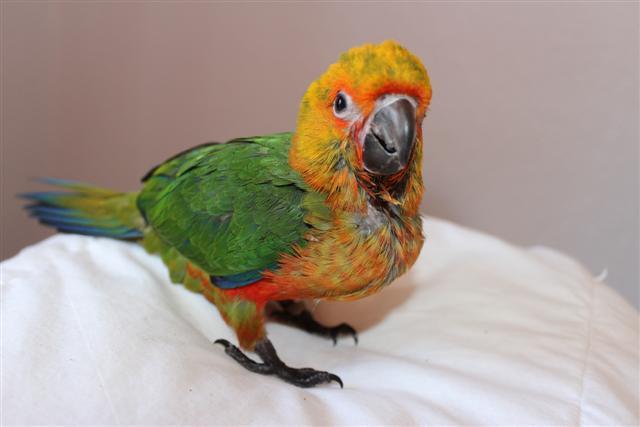 Jenday Conure Weaning?
Question
Castor the Conure
Hi
I have a 9 week o
Jenday Conure Weaning?
Question
Castor the Conure
Hi
I have a 9 week o
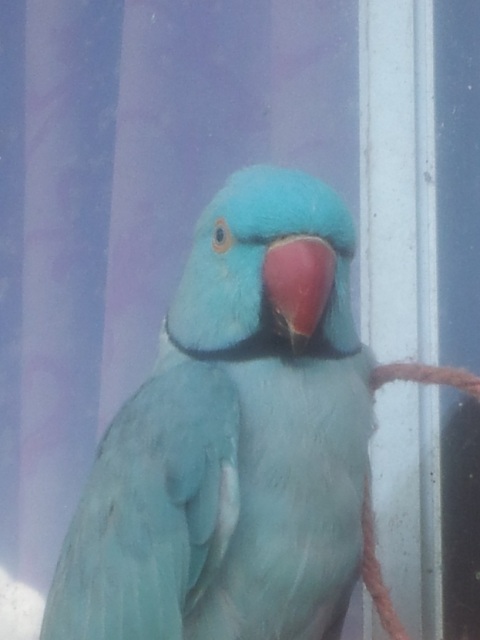 RE: Indian Ringneck probems
Question
Indy our Ringneck
Thank you for your he
RE: Indian Ringneck probems
Question
Indy our Ringneck
Thank you for your he
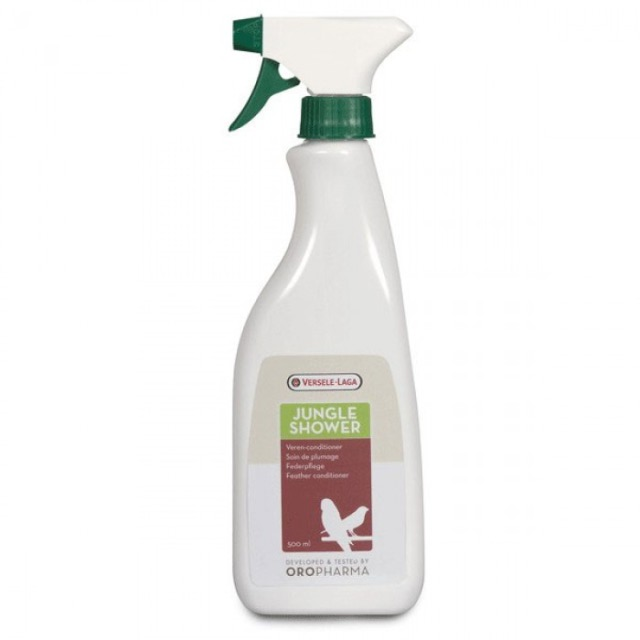 Indian Ringneck Health Issue
QuestionI have an Indian Ringneck who had been neglecte
Indian Ringneck Health Issue
QuestionI have an Indian Ringneck who had been neglecte
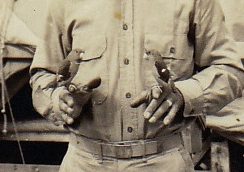 ID Birds
Question
Panama Birds
My uncle served in Panama in 1941
ID Birds
Question
Panama Birds
My uncle served in Panama in 1941
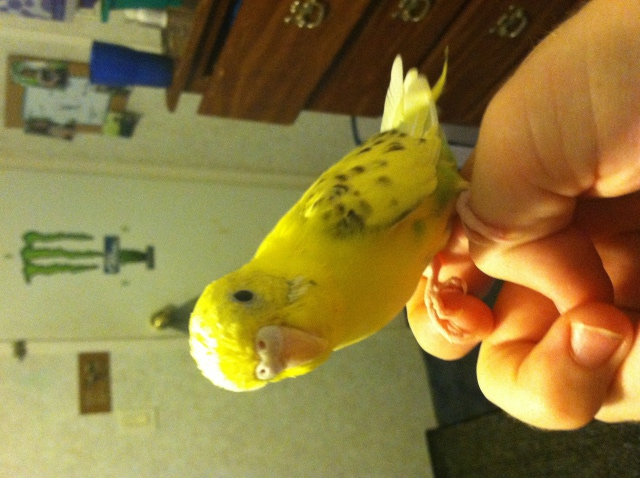 Parakeet gender
Question
Parakeet
Hi, I looked for an expert und
Parakeet gender
Question
Parakeet
Hi, I looked for an expert und